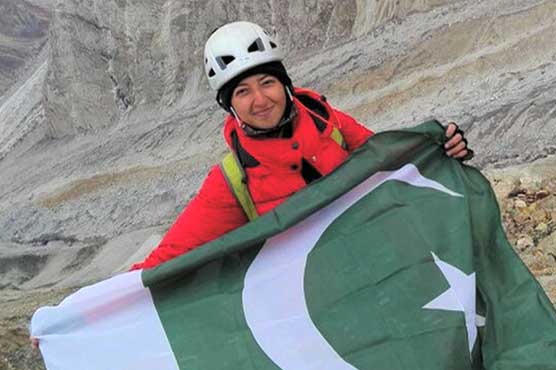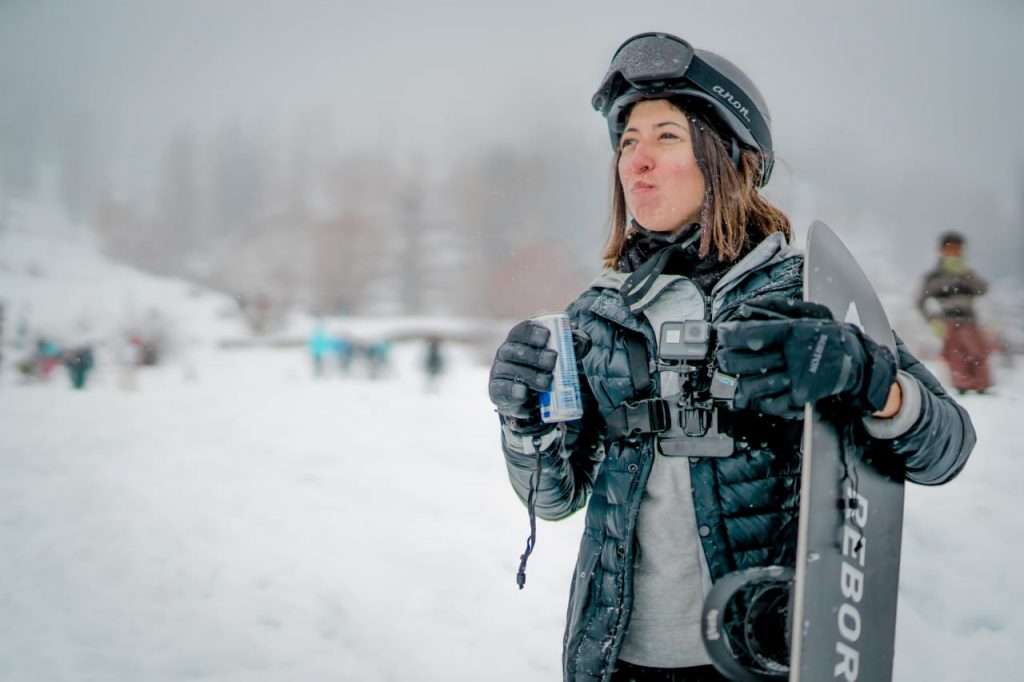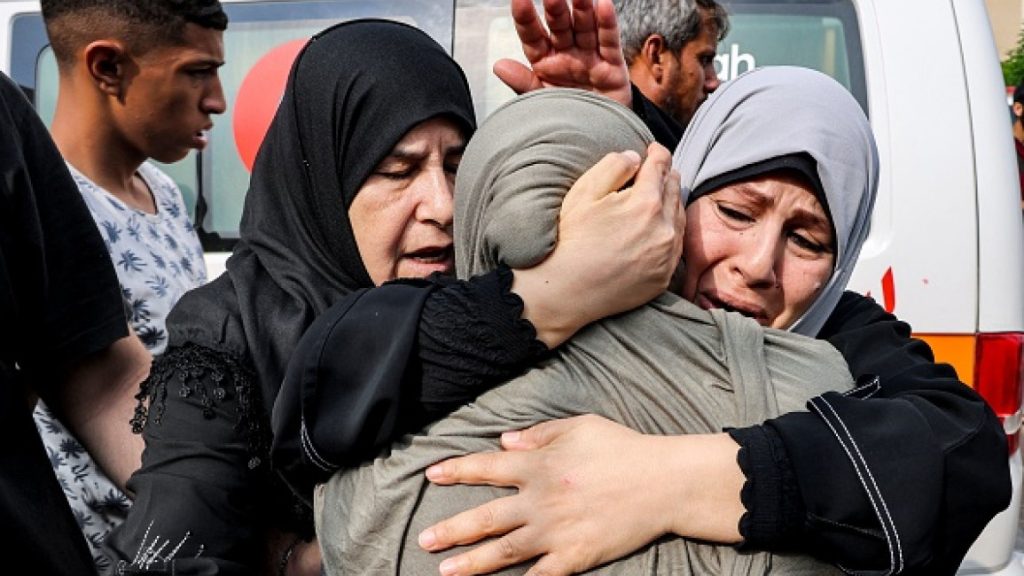Samar Khan is a Pakistani cyclist. She is the first woman in the world to ride a cycle at 4,500 meters above sea-level at the Biafo Glacier in the Karakoram Mountains of Gilgit Baltistan.
1. Why did you become a cyclist?
I always wanted to be a sportsperson and have been adventurous ever since I was young, but due to the family norms, I couldn’t enjoy much of it. But I got a short break when I went to university. There, I took a short paragliding course and that introduced me to the world of sports. After that, I used to hike and cycle in secret.
I love to explore nature, especially mountainous terrains. I wanted to cycle on these mountains and remote areas and I slowly realized that I want to take it up as a profession.
Although I knew it would be a huge challenge for me to earn money from this sport, I wanted to explore this avenue. I learned very quickly that it isn’t going to be easy, you need to take care of your nutrition, finances, fitness, sponsorships etc.
2. How supportive has your family been since you chose this sport?
My Father passed away when I was very young and I was raised by my mother. She was really scared in the beginning when I shared the idea of choosing cycling as a career. It took me almost 5 months to convince her to let me take this as a profession. With time, when she saw the level of respect I have earned in the country, she has been very supportive.
Although there are a few of my relatives who have criticized me on taking this sport, my mother has always been protective and supportive despite this.
I shared everything with her so that she could understand my way of living and now my family, including my brothers, push me to achieve bigger and better things.
3. Did you inherit the adventure-seeking nature from your parents?
I belong to a small village called Dir, near the mountains of Hindukush. The lifestyle in that area has helped in conditioning me. I’ve realized how my childhood has helped build my strength and endurance, while many Pakistanis have struggled in these two aspects because of the lifestyle in their areas.
I’m blessed to have such strong genetics.
4. Tell us about ‘Samar Camp’.
My sports journey took me to United States when I was selected by Global Sports Mentoring Program by ESPNW. It was a huge learning experience for me as it showed me how to train myself to become a better athlete, how to become a brand, how to give back to the community.
So, when I came back to Pakistan, I tried to implement those ideas. I started a summer camp program, which helped empower youth, especially young girls, through sports. We tried to implement work ethic in the youngsters by focusing on their physical fitness, which not only helps the body but also the mind.
Unfortunately, Pakistan is naturally disaster-prone, so the focus of the summer camp was to indulge the youth in sports such as snowboarding, cycling, hiking etc. Although they might not want to take the sport professionally, the training regime will make them physically and mentally fit which will help them in their daily lives.
5. How tough was the Mount Kilimanjaro summit?
I love summitting mountains and that was the reason I wanted to represent Pakistan internationally. Although conventional sports get a lot of limelight, adventure sports have a huge market and fan following as well.
My very first expedition was when I went to Kilimanjaro. It was very different from what I had experienced in Pakistan. There was a lot of activity with various mountaineers from all over the globe. It was a pressure for me to carry the Pakistani flag in front of all these experts and professionals.
I rode through tropical forests, alpine deserts and finally reached the peak covered with snow and clouds. The last stretch was very hard because of the freezing temperature. It took me a good 6 to 8 hours to reach the summit and it was a very wonderful experience to hoist the Pakistani flag over there. I hope to summit more peaks all around the world.
6. Do you have more summits on the bucket list?
I wanted to cycle around a significant landmark in Pakistan or some highest peaks in the country, but when I found that Pakistan has the world’s third-largest glacier, I wanted to cycle there. Many people laughed at me and they said that people can hardly trek on it, so cycling on it is going to be impossible. But I wanted to push my boundaries.
I biked through Shigar fort for 14-15 days, then I hiked for 4-5 days, when I entered into the glacier after four stages, I found the glacier was divided into four parts. I assembled the bike and tried to cycle there. I fell in a lot of places, had to jump through a lot of cracks, and encountered a lot of landslides as well. I stayed there for 2 to 3 weeks and once I came out, I was the first one to successfully bike on the glacier. It was a beautiful experience to achieve that.
That was the moment I realized that is how I want to live my life.
7. What do you say about the ‘Billion Tree Tsunami’ initiative?
Billion Tree Tsunami is a brilliant initiative because Pakistan is one of the top 10 countries facing a serious climate change threat. It should be our nation’s top priority to take care of nature. We have to preserve the nature for a sustainable lifestyle.
Trees are one part of our lungs and I don’t know why people don’t pay special attention to this cause.
I am a bit skeptical on one point though, only planting a tree is not enough, maintaining and preserving the newly planted and existing plants is also crucial. I would request the concerned authorities to not only plant trees but also make sure that they properly develop into large trees.
People like us, sitting in large cities do not realize how our activities are affecting nature, climate and wildlife. We need every single person to realize the importance of such campaigns, not only to preserve nature but for our own future.

8. Are we promoting Pakistan tourism right?
Tourism is very important for Pakistan as it has been described as the next big tourist destination in the world by Forbes. The real meaning of tourism is to bring business and help the economy and to compliment nature as well.
The idea of eco-tourism is very new to the people of Pakistan. The rules, regulations and policies are very important. What can we do to add to the experience of the tourists and also help the economy of the country?
Instead of building huge concrete hotels and resorts, can we integrate the local community to share their homes with the tourists? Make them learn our culture? Empower the local community? These are the important questions that need to be answered.
9. You had an unfortunate incident on Islamabad highway. Can we call it an isolated occurrence? Lastly, do you deem Pakistan safe for solo travel for a woman?
I had an unfortunate incident on Islamabad highway when I was cycling back home. A man came in on a motorcycle, groped me and sped away. I shared the video on social media and it went viral. The officials did try to track him down though, but this wasn’t a single occurrence. It was the fourth such experience since I started professionally.
This is not necessarily a Pakistani thing, it happens all over the world. My anger burst out because we don’t have any protection for citizens in the country. Normally, if such incidents happen in other countries, the perpetrator is easily caught through the use of CCTV footage, but it can’t be done in Pakistan.
There are good and bad people all over the world, but in my experience, Pakistan is a safe country. These things have not happened to me daily, it is a rare occurrence.
These threats are there and it is difficult for women to avoid such situations, but my advice to the women is to be very cautious and always carry a weapon if traveling alone. But these things should not stop us from traveling.
My message to every citizen of this country is to keep the honor and development of Pakistan in mind, no matter which field you work in or aspire to work in.
Youth has a huge responsibility to bring Pakistan to the forefront. Be it any field; sports, media, technology etc. The young people should strive hard to bring the country into the limelight. We need to pave the way for the new generation so that they can live a better life.
Let’s work together for our flag and let’s make the country proud.





Highly Motivational . Appreciate Smt. Samar,s grit & determination.
Sports is a great leveller . It promotes friendship & Camaraderie.
Kudos to Perspective for a nice Interview with a ln excellent Sports person